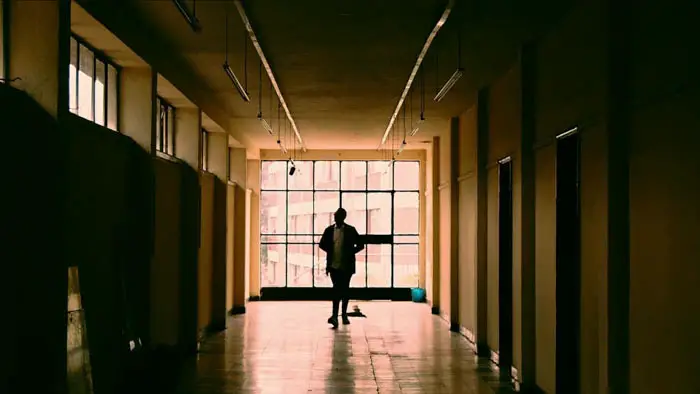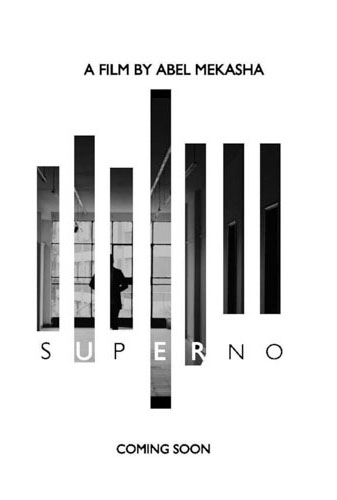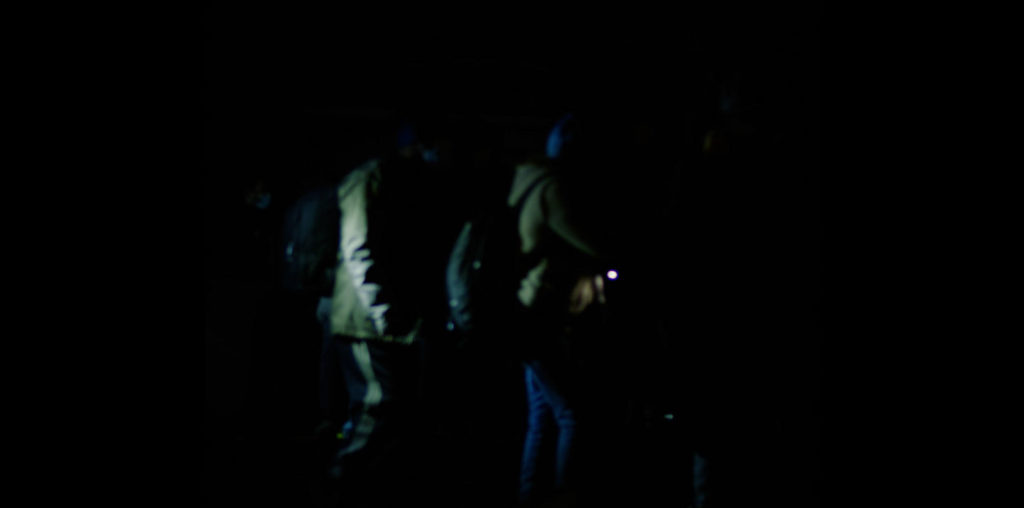
Ethiopian writer-director Abel Mekasha brings his debut feature, Superno, to the screen. In this psychological thriller, a man (Esubalew Nasir) finds himself suddenly restricted inside a black-and-white hallway with nothing but a table, a chair, and an old corded telephone. When he answers the telephone, the voice on the other end tells him that he is number 92, and she is number 0. She also says she is there to provide him with what he asks for.
He is frantic, thinking he’s been imprisoned, but she insists he is free and needs only to state his wishes. As time goes by, he begins to conclude that he may be dead, and this is a moment in between his human life and whatever is next. He does use the phone to reach the living at different points. As his story unfolds, the viewer is taken to flashback scenes from the man’s life. His unresolved issues revolve around a woman he was living with (Debre Lebanos) and seems to have been mistreated. We see that at some point in his life, he had a gun and considered suicide. Back in the monochromatic room, he begins to wonder whether the mysterious unseen operator is there for him or whether he’s there for someone else.
How this film is received will be down to the viewer. Arguments could be made that it is a Science Fiction story, or that it’s a fantasy, or that it’s a concept piece meant to express some element of spirituality. Perhaps the man is dying, and these are his final thoughts? Perhaps he is in some sort of limbo, reviewing the joys and failures of his journey in life. The viewer will decide, and the answer arrived at will say more about the viewer than it does speak to any intention of Mekasha.

“…he’s been imprisoned, but she insists he is free…”
Whatever you conclude, it is best not to be in a hurry. The events of the film play out slowly and deliberately, and the constant sound of the ringing phone will gnaw through your skull like a diamond saw blade. Be sure you have an uninterrupted 90 minutes to dedicate to Superno.
Mekasha made the film in Ethiopia through a Chilean production house. The Reporter Ethiopia online magazine interviewed him about his film-making, and he touted the advantages of working locally: “Ethiopia has a lot of benefits when it comes to film-making and has a lot of promise in the film business. The advantage is increased and job opportunities are created by the fact that it is relatively cheaper to shoot movies locally.”
Filmically, minimalism is the name of the game here. The low budget has resulted in very basic production values. The digital cinematography is adequate, but just. Scenes are, at most, two-shots, but mostly, we see the main character agonizing over the phone and trying to figure out his situation. Superno is a fascinating meditation on summarizing life and trying to repair the past.

"…be sure you have an uninterrupted 90 minutes to dedicate..."


